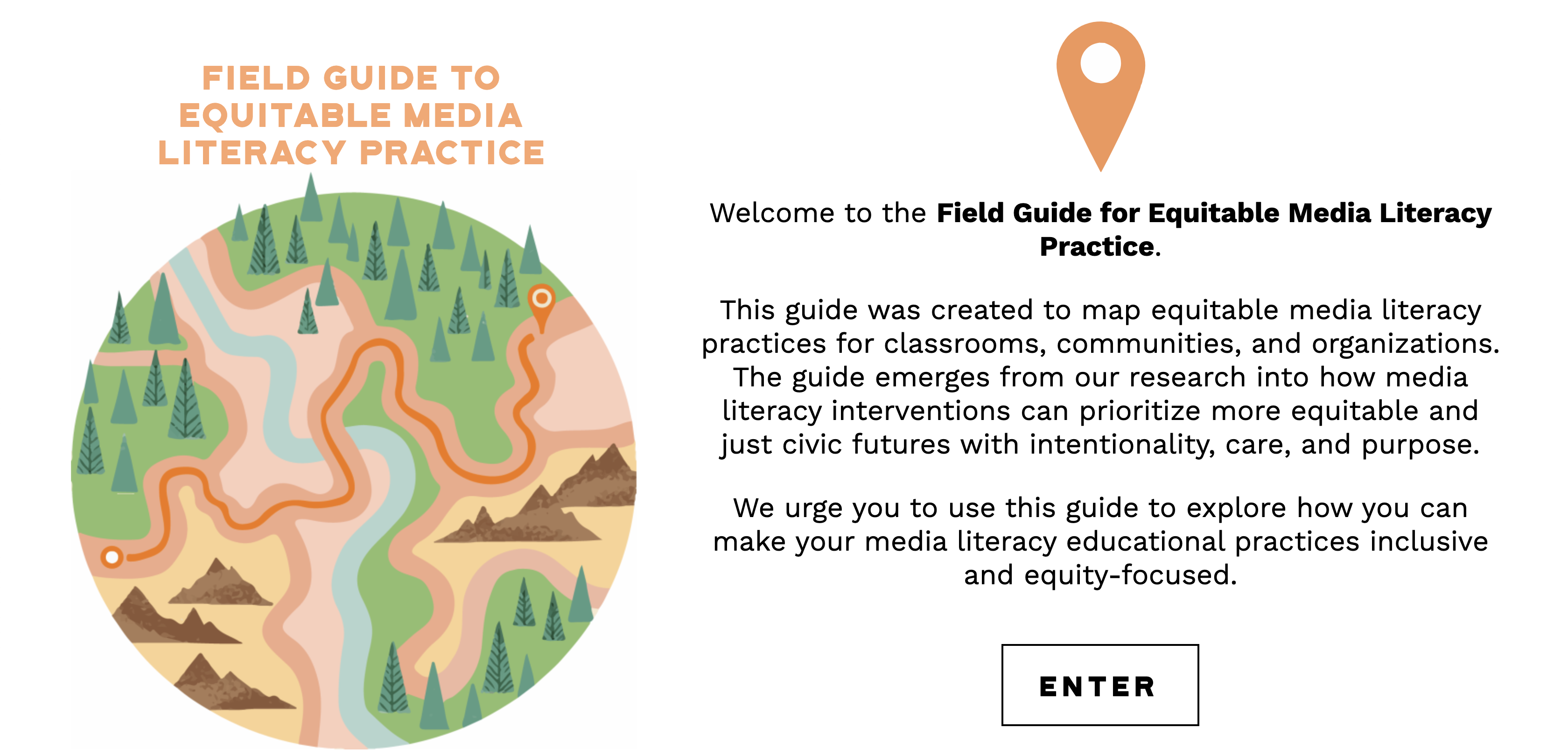Equity and Impact in Media Literacy Practice
Wednesday, October 20, 2021

Happy Media Literacy Week everyone! We are very excited to announce our own Paul Mihailidis along with Principal Investigators Srivi Ramasubramanian and Melissa Tully will be presenting a year’s worth of research on impactful media literacy practices on October 28th at 5:00 pm ET.
Their project, Mapping Impactful Literacy Practices (MIML,) investigates the last decade of academic research to understand how impact is defined in the literature. They, along with the rest of the MIML team, conducted 27 in-depth interviews with media literacy stakeholders across the country to understand contemporary practices having that impact. They also surveyed 741 practitioners from a range of media literacy organizations to understand the challenges and opportunities for incorporating equity into those practices.
There’s a lot to look forward to in the MIML launch and after, but for most of the team, seeing how practitioners will use this research is the focus. They were kind enough to share some thoughts.
“I am most excited to see so much interest in learning about equitable media literacy practices from multiple stakeholders,” Dr. Ramasubramanian told us in an email. She hopes the research will help “educators and researchers… engage more directly with equity and social justice in their work.”

The in-depth report will be available on the 28th, but the team already released the Mapping Impactful Media Literacies Field Guide, an accessible online tool created from the data to help anyone think through their, and their community’s relationship to media.
“I’m really excited to hear what practitioners think about the field guide,” MIML researcher Emily Riewestahl said via email, “and to learn how they have applied it to their own media literacy practices.”
Fellow researcher on the project, Patrick R. Johnson has similar hopes for the project.
“I’m someone who really wants research to do and mean something to the communities it is attempting to understand,” he said via email. “To me, there is a severe disconnect between the traditional research done in academia and the purposeful research that connects with communities to make action happen. Community engagement can be and SHOULD be the crux of who we are as scholars and teachers; this project is an exemplar of that.”
This project was launched in June 2020 as part of a $250,000 international research initiative funded by the National Association for Media Literacy Education (NAMLE.)

The effort builds on past research and practice, but notes calls to shift practice from primarily individualistic ideas of media literacy education, towards more equitable, systemic impacts and community resilience. Here, researchers conceptualize how media literate individuals join together in empowered communities that support democracy. Media consumption and production has always played a key role in connecting individuals to one another, weaving the fabric of society. However, the drastically increased pace and radically decentralized nature of this process in contemporary life makes more vital than ever, rapid, diverse, and flexible media literacy responses that center equity and straddle formal and informal learning environments.
“I’m hoping that the research will help continue to push a research agenda in media literacy and equity,” Dr. Tully wrote us in an email, “and that the field guide will lead to more process-focused practice that centers equity and justice.
The MIML team is excited to be a part of this rapidly evolving space.
“We’re proud that we focused on impact and equity, and the processes and practices, and values, that support those,” Dr. Mihailidis told us via email. “I think we’ve provided some valuable resources for our community.
Look out for more developments at Media Literacy Week. We’ll have a recap for you and links to the full report!